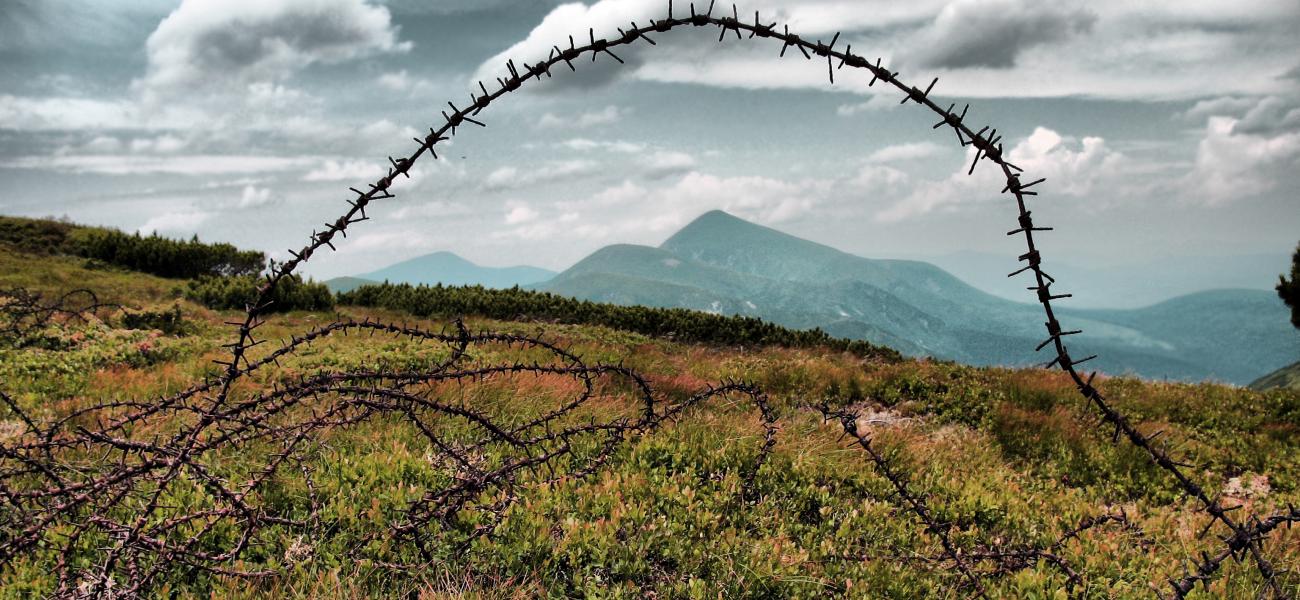
Ukraine Between Russia and the West: Buffer or Flashpoint?
This article was originally published by the World Policy Journal.
Abstract
A buffer zone can separate great powers, but this arrangement only works if the competing states-and the buffer itself-agree on the terms. Ukraine's domestic turmoil and relations with Russia, the U.S., and Europe may not make it an ideal candidate for a buffer state, argue professors Thomas Graham, Rajan Menon, and Jack Snyder, but that outcome could be better than the other alternatives.
The conflict in Ukraine that began in early 2014 produced the worst crisis between Russia and the West since the end of the Cold War. In its wake, foreign policy mavens have engaged in contentious debates over Ukraine’s future and the West’s choices. During the Obama administration, the West imposed sanctions on Russia, viewing its annexation of Crimea and material support for rebel forces in Ukraine’s eastern Donbass region as violations of the basic norms of post-Cold War international relations. This approach to Russia was based on a consensus within Europe and between Europe and the United States.
But things changed in 2016. Donald Trump was elected U.S. president, bringing to the office a disdain for the American establishment’s liberal internationalist foreign policy. Major transformations were also underway in Europe: Brexit, disarray in the European Union, and the rise of nationalist and populist parties, which held in common with Trump a more positive view of Vladimir Putin’s Russia. Because of these changes, the West may shift gears and seek an accommodation with Russia over Ukraine’s status. As such, intermittent discussions in the West about the feasibility and desirability of Ukraine becoming a buffer state have acquired added significance, notwithstanding that such talk has always made Ukrainians uneasy due to their aspirations to be part of the West—politically, economically, and militarily.
For full text click here.
Thomas Graham
Thomas Graham is a member of the Russia Matters Editorial Board and managing director at Kissinger Associates, Inc., where he focuses on Russian and Eurasian affairs.
Rajan Menon
Rajan Menon is the Anne and Bernard Spitzer Chair in Political Science at the City College of New York/City University of New York and is a Senior Research Scholar at the Saltzman Institute of War and Peace Studies, Columbia University and a Global Ethics Fellow at the Carnegie Council on Ethics in International Affairs.
Jack Snyder
Jack Snyder is the Robert and Renee Belfer Professor of International Relations in the Department of Political Science and the Saltzman Institute of War and Peace Studies at Columbia.
Photo by Iurii Bakhmat shared under a CC BY-SA 2.0 license.
